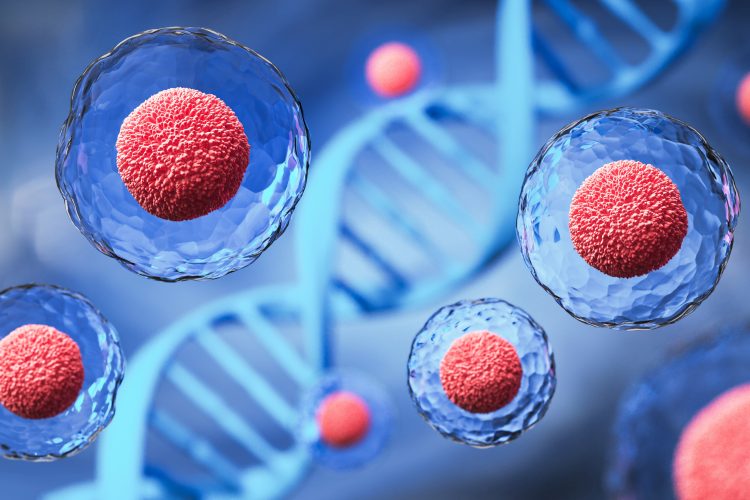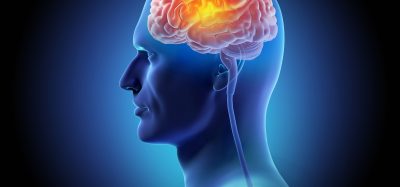AI in drug discovery: faster, smarter, better
Posted: 30 April 2025 | Drug Target Review | No comments yet
Claudia Zylberberg, Chair of Kosten Digital, reveals how AI is revolutionising cell and gene therapy, making drug discovery faster and more cost-effective.


In the rapidly evolving field of cell and gene therapy (CGT), the ability to manage complex biological data, optimise manufacturing processes, and accelerate drug discovery is crucial.
At the forefront of this revolution stands Claudia Zylberberg, a scientist, entrepreneur, and advocate for accessible and advanced healthcare solutions. Zylberberg has built an impressive career at the intersection of science, technology, and business. She is the founder of Akron Bio, and currently serves as Chair of the Board at ARScience Bio and Kosten Digital – a company dedicated to transforming drug discovery and advancing therapeutic developments through personalised AI solutions.
In this interview, Zylberberg sheds light on how AI is tackling some of the biggest challenges in CGT, why traditional software solutions fall short, and how Kosten Digital’s platforms are delivering faster, more effective, and more affordable therapies.
How AI is solving CGT’s biggest challenges
Cell and gene therapy is inherently complex. It involves a dynamic and often unpredictable process where every stage, from target identification to clinical trials, generates vast amounts of data. Traditional methods of managing this data are slow and prone to human error, often leading to delays and increased costs. Personalised AI solutions, however, are transforming this landscape.
Personalised AI solutions cut through this complexity by integrating diverse data sources, identifying patterns humans might miss, and accelerating key processes.
“Personalised AI solutions cut through this complexity by integrating diverse data sources, identifying patterns humans might miss, and accelerating key processes,” Zylberberg explains. “In drug discovery, AI models can help accurately assess the health of cells, predict cell behaviour, optimise vector design, anticipate manufacturing adverse effects or out-of-specification situations, streamline gene editing strategies, and forecast reducing time and cost.”
AI can analyse enormous datasets at a scale and speed beyond human capability. This allows scientists to predict cell growth conditions more accurately, minimise batch failures, and develop more effective therapies with greater consistency. By tailoring AI models to the unique needs of CGT – such as variability in patient-derived cells and complex supply chains – these tools are providing predictive insights and enhancing quality control in ways previously unimaginable.
AI makes CGT faster and more reliable
One of the greatest inefficiencies in CGT lies in the variability and complexity of biological materials. Since each patient, biological state, cells, and cell lines behave differently, this variability creates challenges in drug discovery, process development, and manufacturing consistency.
AI-driven predictive modelling can shorten the preclinical phase by simulating biological responses.
“AI can significantly optimise these areas by analysing large datasets to predict optimal cell growth conditions, reduce batch failures, and identify ideal candidates for therapeutic development,” she explains. “Additionally, AI-driven predictive modelling can shorten the preclinical phase by simulating biological responses, leading to more targeted and efficient clinical trials. The result? Faster time-to-market and reduced costs.”
By using AI to simulate biological responses, researchers can anticipate how different patient cells will react to therapy, minimising trial-and-error approaches. This leads to more efficient clinical trials and quicker delivery of effective therapies to patients. AI also enhances the manufacturing process, predicting when batches are likely to fail and adjusting conditions in real time to improve consistency and yield.
Why traditional software falls short
Despite advancements in drug discovery and therapy development, traditional software solutions have struggled to keep pace with the complexity of CGT. Designed for standardised, linear processes, most legacy platforms fail to manage the variability and unpredictability inherent to living biological systems.
“Traditional software often lacks the flexibility and intelligence required to handle the intricacies of CGT. These solutions were designed for standardised processes and fail to manage the dynamic, high-variability data unique to living therapies.”
Kosten Digital was established to bridge this gap. Its AI platforms are designed specifically for CGT, capable of handling complex biological data, integrating with laboratory and manufacturing systems, and adapting to evolving research and clinical needs.
“We offer predictive analytics, automated quality control, and process optimisation tools that help scientists and manufacturers navigate the complexities of CGT with greater precision and efficiency,” she adds.
Real-world impact
The impact of Kosten Digital’s AI tools is already being felt in the CGT space. Zylberberg shares a notable success story involving a CAR-T therapy developer – a type of cell therapy that uses genetically engineered T-cells to fight cancer.
“One impactful case involved optimising the cell expansion phase for a CAR-T therapy developer. Traditionally, achieving consistency across cell batches was a major challenge, leading to delays and costly batch failures.” She continues, “By implementing Kosten Digital’s AI-driven predictive analytics, the team was able to fine-tune cell culture conditions in real-time, reducing batch variability by over 40 percent. This not only improved product consistency but also shortened the manufacturing timeline – getting the therapy to patients faster and more reliably.”
By integrating AI into the manufacturing process, the developer achieved higher consistency across batches, improved overall product quality, and reduced time-to-market – all critical factors in ensuring patients receive timely and effective treatment.
The future of AI in CGT
AI holds tremendous potential to reshape drug discovery and development in CGT. From precise target identification to optimised gene-editing techniques and streamlined clinical trial designs, AI has the capacity to transform every stage of the drug development pipeline.
Imagine AI algorithms that can predict patient-specific responses or tailor gene therapies based on real-time biomarker data – that’s the future we’re building toward.
“Imagine AI algorithms that can predict patient-specific responses or tailor gene therapies based on real-time biomarker data – that’s the future we’re building toward,” Zylberberg envisions.
However, significant barriers remain. Data fragmentation remains a key challenge, as many CGT developers work in isolation, restricting the data sharing needed to strengthen AI models. Regulatory frameworks must also evolve to better understand and assess AI-driven insights.
“Building trust in AI – both among regulators and clinicians – will be key to unlocking its full potential in CGT,” she explains. Establishing clear guidelines and ensuring transparency in AI decision-making will be essential for widespread adoption and regulatory approval.
Empowering the workforce with AI
While some fear that AI will replace human jobs, Zylberberg views it as a powerful tool for enhancing human expertise.
“AI isn’t here to replace scientists; it’s here to empower them,” she emphasises. “In CGT, where manual processes and complex decision-making dominate, AI can serve as a powerful co-pilot.”
For drug discovery professionals, AI can quickly sift through vast datasets, offering predictive insights that accelerate hypothesis testing and experimental design. In manufacturing, AI-driven automation can optimise workflows, reduce errors, and ensure compliance with regulatory standards. Moreover, Kosten Digital is committed to making AI tools accessible to a broader audience.
“We’re developing user-friendly AI tools that don’t require a PhD in data science to operate,” she explains. “By democratising access to AI, we can upskill the workforce, enabling researchers and technicians to leverage advanced analytics in their daily work. This not only enhances productivity but also fosters a culture of continuous learning and innovation within CGT.”
A new era for CGT
The integration of AI into CGT marks the beginning of a new era in drug discovery and therapy development. Through personalised AI solutions, Kosten Digital is helping to unlock the full potential of CGT – reducing costs, improving manufacturing consistency, and accelerating the development of life-saving therapies. Kosten Digital creates tailor-made solutions for customers, meeting every customer where they are in their journey. The objective is to create digital products that can advance the industry in a safe and reliable manner.


Claudia Zylberberg is a pioneer in the cell and gene therapy (CGT) sector, driving industry growth through global standardisation, stronger regulatory frameworks, and advanced manufacturing technologies. Her work has enabled the production of critical cGMP-compliant materials, accelerating clinical development and commercialisation.
With a background in immunology, she has contributed to key patents and publications that have advanced the field. She has also championed workforce development, creating education programmes from school level to higher education to build a skilled talent pipeline.
Through her leadership at Akron and Kosten Digital, Zylberberg continues to shape the future of CGT, improving manufacturing efficiency and making therapies more accessible.
Related topics
Artificial Intelligence, Cell Therapy, Drug Discovery, Drug Discovery Processes, Gene Therapy, Immuno-oncology, Immuno-oncology therapeutics
Related conditions
autoimmune disease, Cancer
Related organisations
Akron Bio
Related people
Claudia Zylberberg (Founder - Akron Bio)








